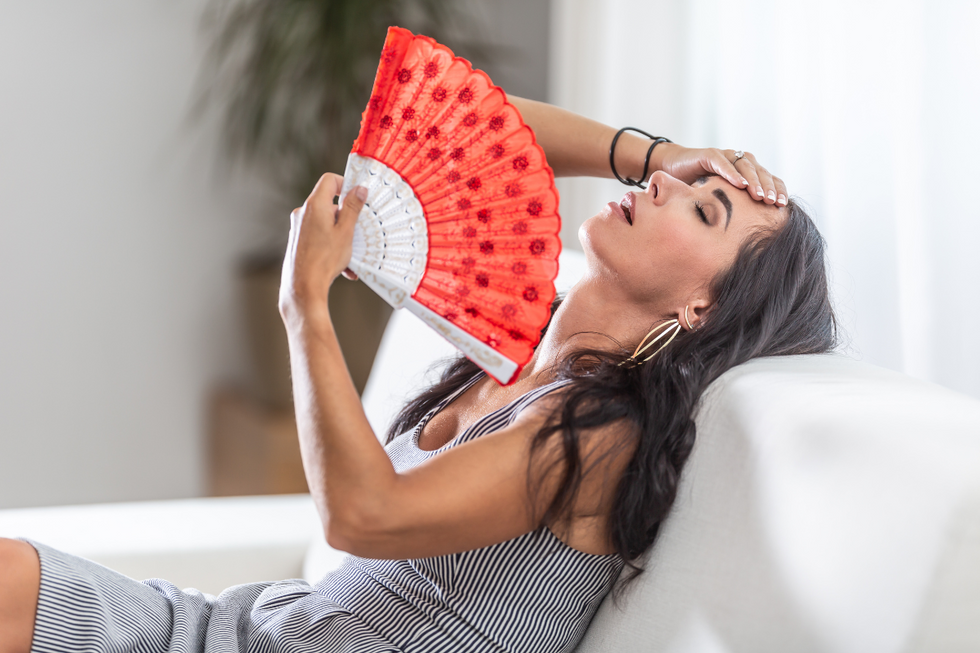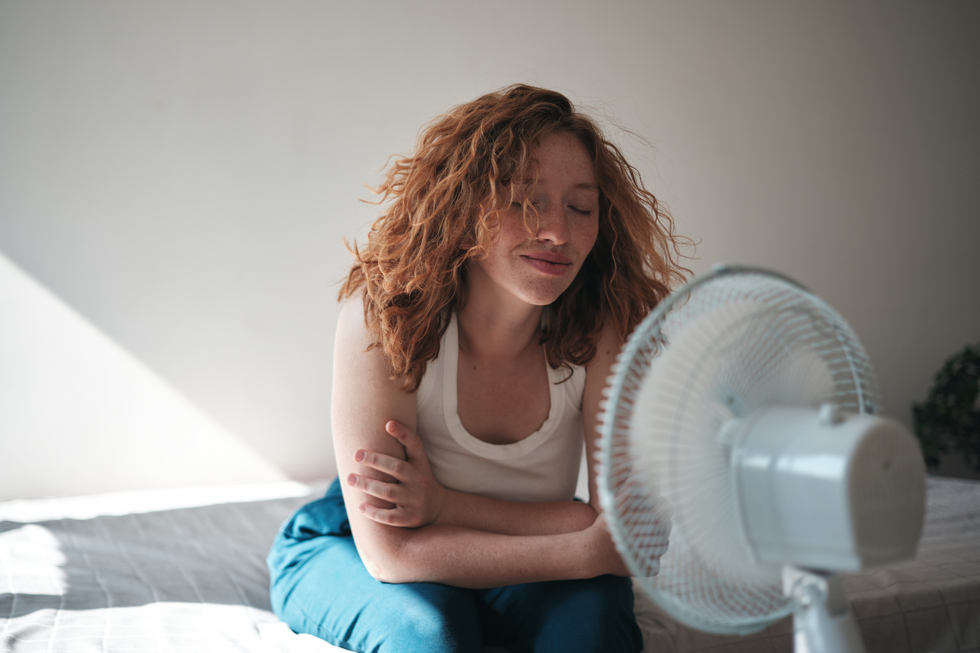Britons to lose two hours of sleep every night while nation sizzles in mini heatwave
The impact of the sweltering weather can extend beyond mere sleep disruption, directly affecting brain chemistry and emotional regulation as well
Don't Miss
Most Read
Latest
While the blistering heat is compounded with glorious sunshine, the nation might become slightly more irritable than usual as the soaring temperatures grip UK households.
And that might be the result of Britons losing up to two hours of sleep each night during mini heatwaves while temperatures climb to 27C across parts of the UK.
Now, Britons are desperately searching for ways to cool down as Google Trends data reveals searches for "Can't Sleep + Heatwave" have skyrocketed.
Sleep expert Martin Seeley has explained that warmer evening temperatures not only make it harder to fall asleep but also disrupt the sleep cycle, leaving people feeling groggy, fatigued, and tired during the day.

The lack of quality sleep creates a ripple effect on health, leading to weakened immune systems, increased stress and exhaustion
|GETTY
The lack of quality sleep creates a ripple effect on health, leading to weakened immune systems, increased stress and exhaustion.
The science behind sleep disruption during hot weather centres on the body's natural cooling process. Your core body temperature needs to drop by at least 1C to trigger the release of melatonin, the sleep hormone essential for falling asleep.
Anything above 20C can hinder this crucial process, completely throwing circadian rhythms and causing sleepless nights.
When temperatures remain elevated, the body struggles to cool down naturally, keeping people awake and alert.
The effects begin with lighter sleep phases, then progress to less restful deep sleep and finally result in more frequent night-time awakenings.
This disruption occurs because sleep is closely linked to the body's internal thermostat, which requires cooler conditions to function properly and initiate the sleep cycle.
LATEST DEVELOPMENTS
But hot weather's impact can extend beyond mere sleep disruption, directly affecting brain chemistry and emotional regulation.
Lack of quality shut-eye can impact the amygdala, the brain area that processes emotion, weakening its connection to the prefrontal cortex where rational decisions are made.
Over time, this leads to increased likelihood of snapping at loved ones, feeling overwhelmed by small annoyances, and overreacting to minor situations, destabilising mood and emotional control.
Heat also directly increases irritability levels, even without sleep loss. Studies report that elevated temperatures cause aggression and irritability to rise independently of sleep quality.
When temperatures soar, the body works overtime controlling heart rate, dehydration levels, and cortisol production.
Mixed with poor sleep, this creates the worst possible combination for mood swings and short tempers.

Treating fans like air conditioning units merely circulates hot, stale air whilst potentially drying out skin and sinuses
|GETTY
Common mistakes during heatwaves which damage sleep quality
1. Sleeping naked can trap sweat on the skin, making you feel hotter and stickier as clothing is needed to wick away moisture and help regulate body temperature effectively.
2. Ice-cold showers or baths, popularised by social media trends, can backfire by causing mild shock from temperature changes. This raises core body temperature and warms you afterwards, defeating the cooling purpose.
3. Keeping windows open all day simply allows more hot air into rooms, with homes acting like greenhouses that trap heat long after sunset. Closing windows, curtains, and blinds during daylight hours proves more effective.
4. Treating fans like air conditioning units merely circulates hot, stale air whilst potentially drying out skin and sinuses, leading to morning throat irritation and allergy problems.











